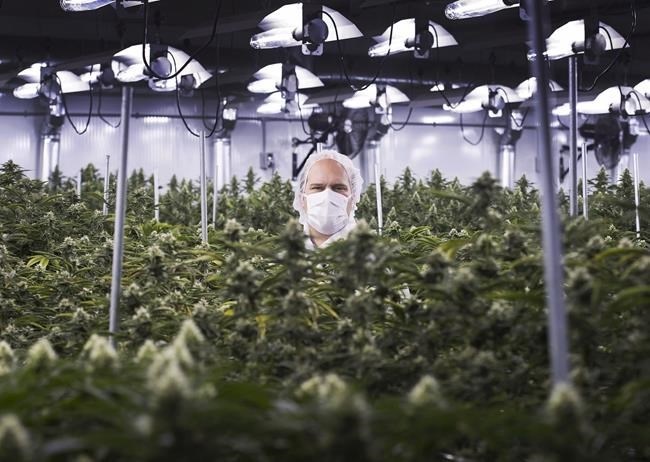Emerging cannabis industry luring agricultural workers from traditional crops

WEST KELOWNA - Attracting workers to agricultural jobs has always been difficult with generally low pay for hard work.
But a local vineyard manager says it’s been even tougher than usual this year to find people to pick grapes and the culprit is likely the emerging cannabis industry and its need for production workers.
“As the weed is now going to be legal, we’re finding people are switching, especially the seasonal people who start in the spring,” vineyard manager Colleen Ingram says. “I looked into it myself in what they are paying and it’s quite an increase from what some farmers are able to pay.”
Her company Parkes and Ingram manage 16 vineyards on contract for several different wineries including The Hatch in West Kelowna where winemaker Jason Parkes oversees operations.
Ingram estimates harvest will begin mid to late September.
She says she normally staffs the shorter-term harvesting operations from a roster of regulars including workers from Quebec and Australia as well as variety of locals, friends and relatives.
Ingram recently posted an add for grape pickers offering $60 a bin, a tad higher than the industry average, but says she will sometimes switch workers at some sites to an hourly rate if the grapes prove harder to pick and the number of bins they can produce also drops.
“We didn’t really advertise that but we want to keep them coming back so we don’t want to short change them,” she adds. “The benefit we can offer is that we manage clean properties where the grapes tend to be easier to pick.”
Still, Ingram says her research found cannabis trimmers could make between $18 and $20 an hour while working indoors and with no technical training required.
“They pay hourly, there’s no piecework, at least that’s what we’re hearing in our industry,” she adds.
Ingram admits the work picking grapes might be harder, but says her regulars can pick four or five bins in a day and make significantly more than $20 an hour.
There’s also the question of legal status, Ingram adds.
“I’ve been hearing about people working for the weed industry in Canada who find they won’t let them get across the U.S. border when they find out what they do. It’s not legal at the federal level in the U.S. and it’s still technically illegal in Canada.”
There are approximately 25 licensed producers of medical and recreational cannabis in British Columbia including at least four in the Okanagan.
To contact a reporter for this story, email John McDonald or call 250-808-0143 or email the editor. You can also submit photos, videos or news tips to the newsroom and be entered to win a monthly prize draw.
We welcome your comments and opinions on our stories but play nice. We won't censor or delete comments unless they contain off-topic statements or links, unnecessary vulgarity, false facts, spam or obviously fake profiles. If you have any concerns about what you see in comments, email the editor in the link above.



